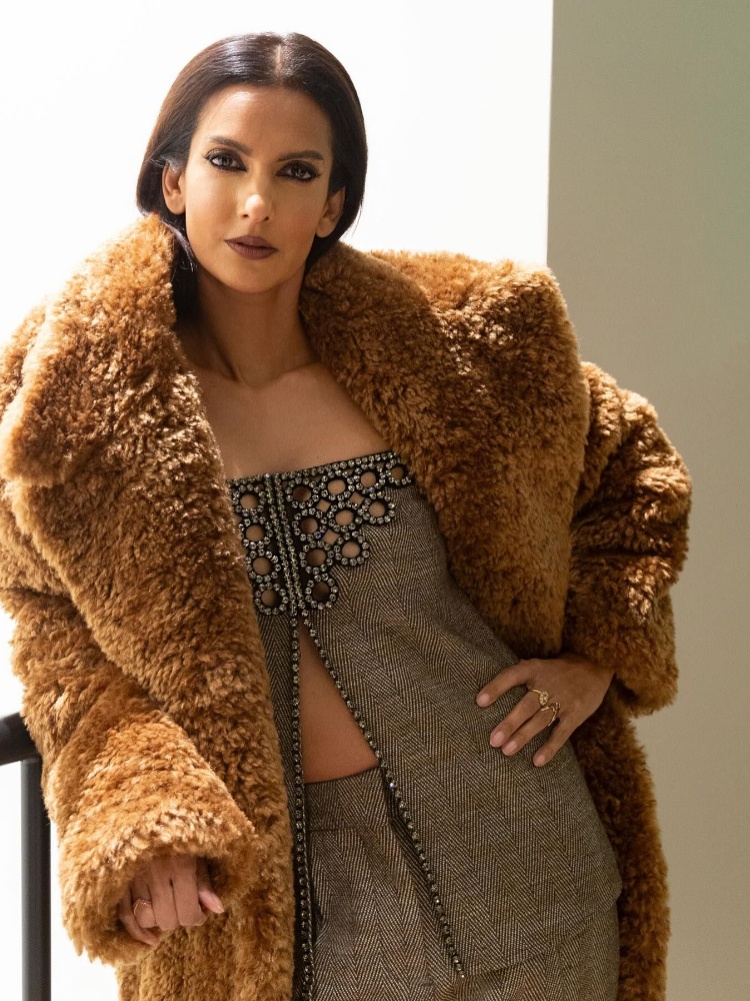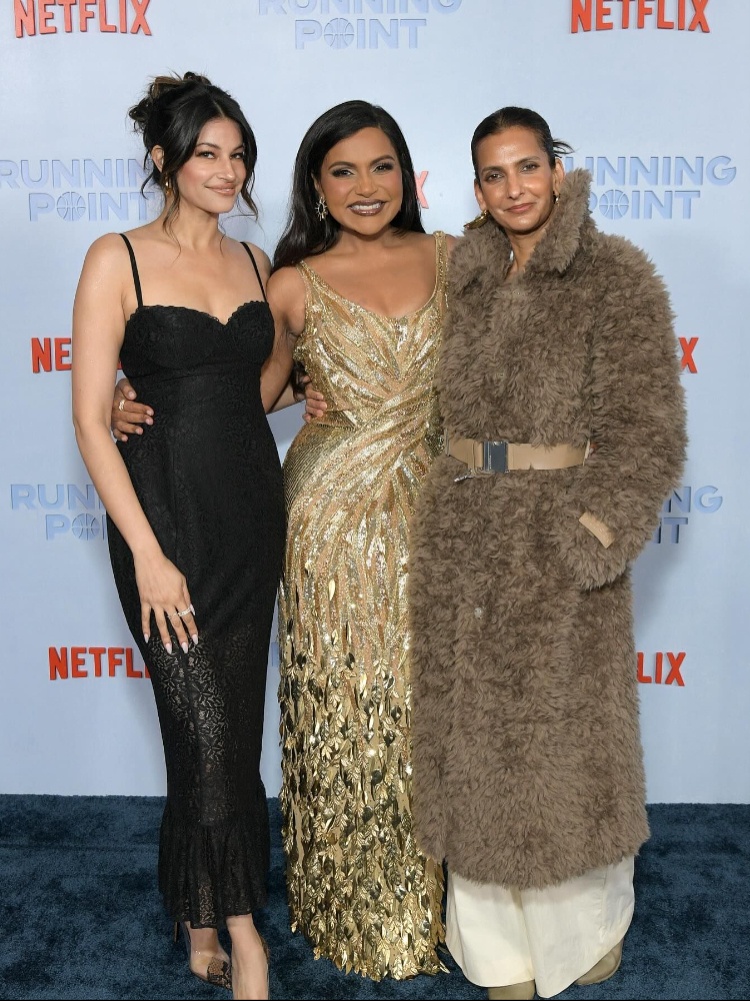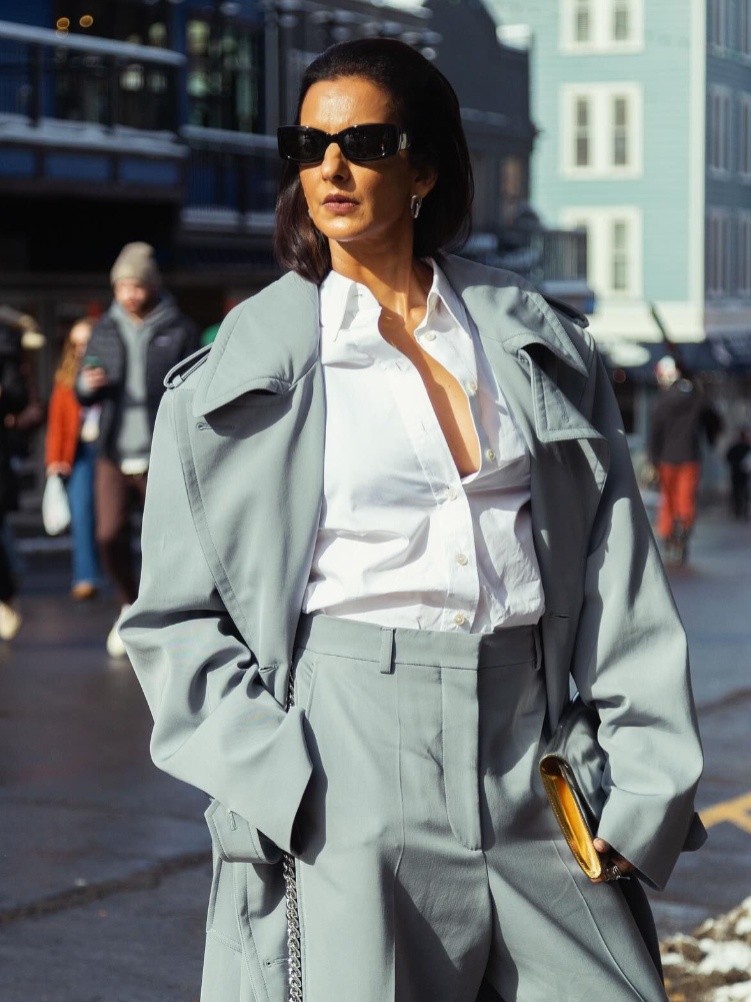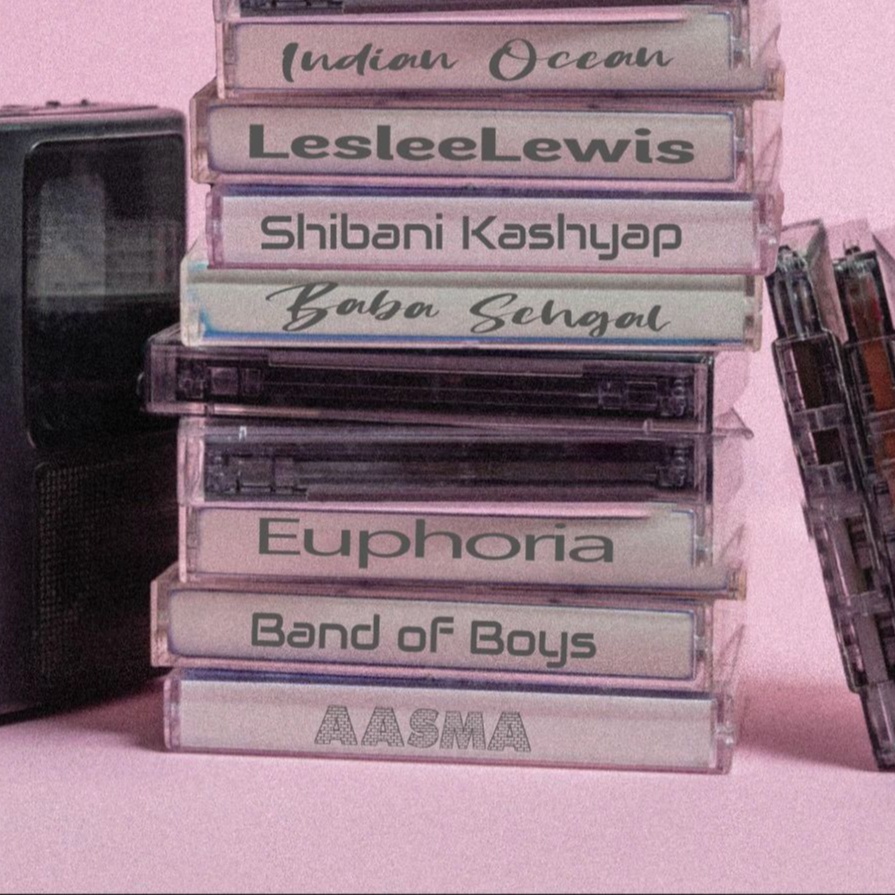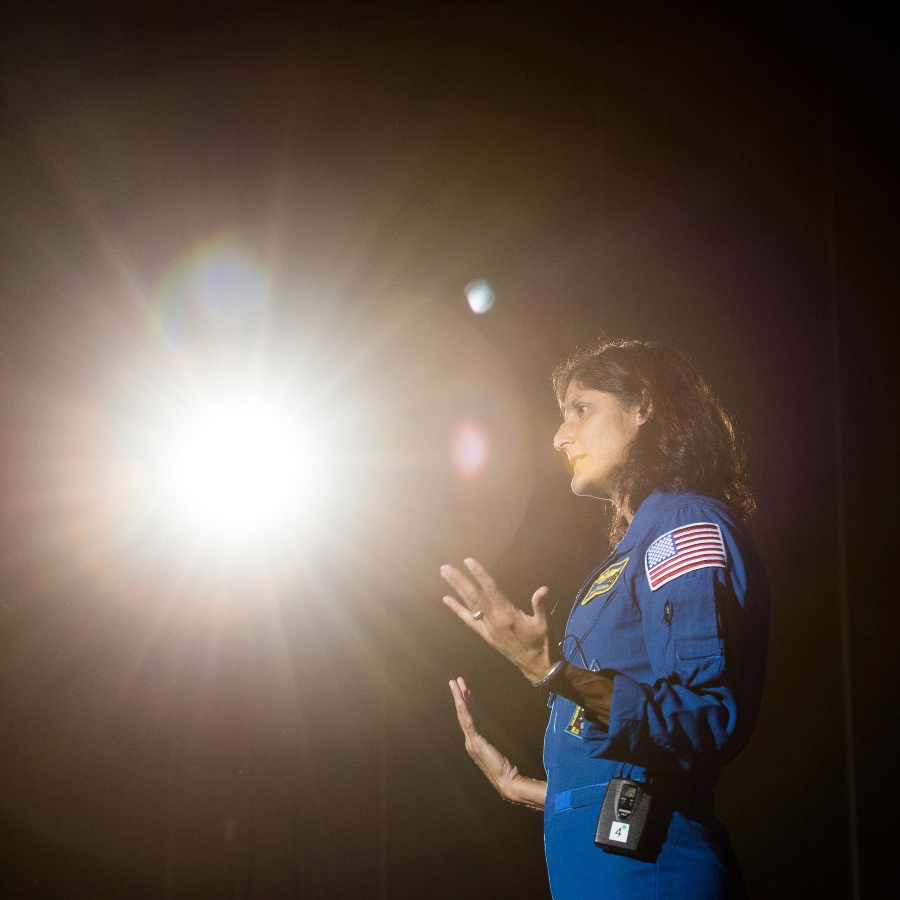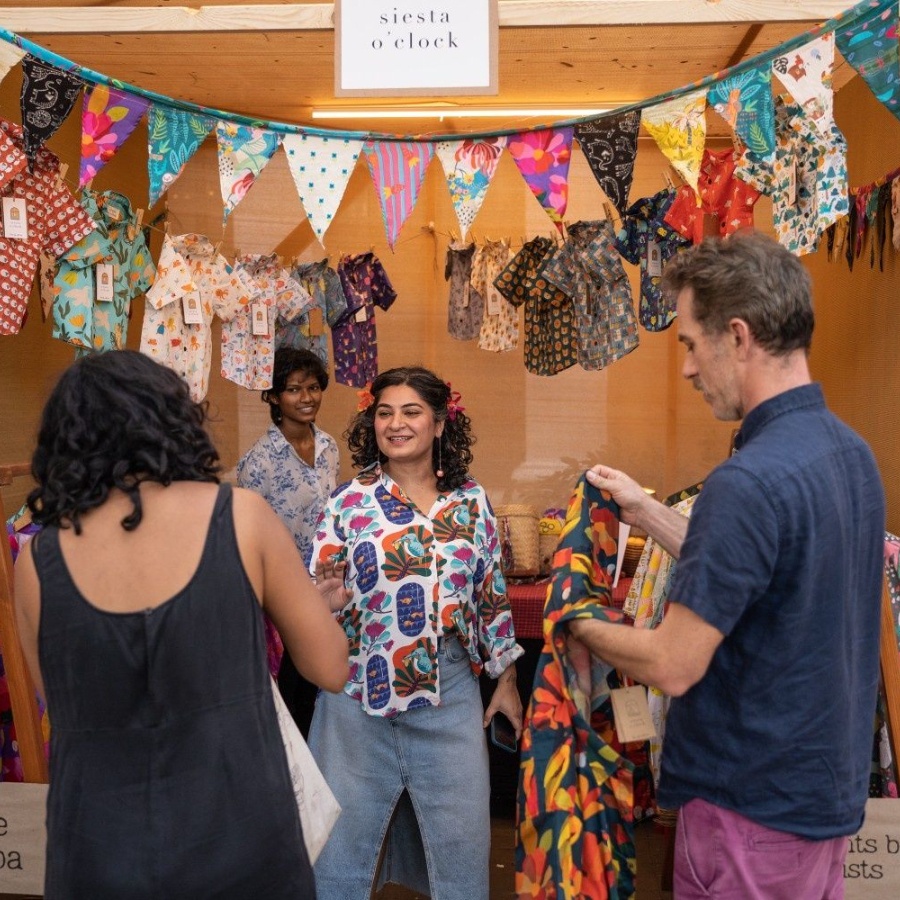Cocaine bricks smuggled in achar bottles, a kurta-clad ‘murderwala’, a Tan France cameo, and Cocaine Aunty... Deli Boys, which releases on JioHotstar today, is the South Asian drug-edy we didn’t know we needed. It’s slapstick and hare-brained, with a joke-led plot that will have you rooting for a family of drug smugglers and mindlessly laughing your way into a 10-episode binge.
The show-stealer is Lucky Aunty, played by Poorna Jagannathan. And not just thanks to her ridiculously covetable wardrobe—big hair, power shoulders, massive sunnies, animal print, pussy bows, and leather-everything—but because she takes the concept of the South Asian Aunty and spins her on her head. It’s not the first time she has done this—think Never Have I Ever’s (NHIE) Dr Nalini. While the 52-year-old actor swears there’s no secret smash-the-aunty agenda here, one can’t help but wonder if she is slyly updating the path for the next generation of millennial aunties (yes, we’re there).
Since I first spoke to Jagannathan, in 2011, when Delhi Belly released, the actor has arrived as the poster girl of brown pride. Back then, she was seen as too ‘unconventional for Indian cinema’—there weren’t too many 40-year-old mum-of-one, curly-bobbed stars in Bollywood then (or today). Now, a decade later in Hollywood, she’s established herself high up on the roster of South Asian actors. As if that needed reiterating, she has recently signed on to be part of the DC Comics franchise as a recurring character, Zoe, in the HBO series Lanterns, an adaptation of Green Lantern.
With her personal choices as well as her professional picks, she makes a statement—be it her choice of industry (pre PC-era Hollywood), the shows and films she signs (NHIE, Wolfs, Big Little Lies), her girl squad (Mindy Kaling, Richa Moorjani, Lilly Singh), her chief styling advisor (Tan France, of course), and on some occasions, playing the micro style icon (did you see her in Prada at the Wolf’s premier?).
We speak on an early March morning, right after she has shared an Insta story where she’s seen strapped to a hangover IV, cosy in compression socks. Read on for more about Lucky Aunty, girlfriends, and 50-something power…
Shahnaz Siganporia: I just finished bingeing Deli Boys.
Poorna Jagannathan: Wait, did you? Okay, can you honestly give me the download on what you thought? Don’t be kind, just be honest.
SS: You know, the diaspora comedy is finally just for laughs. It’s not justifying its right to be there. This isn’t about identity. It’s farcical, it’s silly, but most of all, it’s fun.
PJ: I totally agree! Don’t come to this show if you want brown shows to be about finding God or your inner self. There are no hidden meanings and agendas here.
SS: I’m convinced you are trying to rewrite the aunty archetype, though.
PJ: I would say from the time that you’ve known me, be it Delhi Belly or Deli Boys, I’m really not drawn to a particular role. I’m drawn to the writing, no matter how big or small the role. In Ramy, I had a tiny two-episode arc, another aunty, but it was brilliant. It’s not the aunty thing. It’s more ‘Do I want to be part of the world that this writing is creating?’. You sign six years of your life away in a contract for a show; that’s straight off the bat.
SS: What made you sign those six years away for Deli Boys?
PJ: I had just completed NHIE and was truly exhausted. We had shot season three and four together. I wasn’t in the headspace for anything. And then: Did I want to jump into another brown show? It was going to be shot in Chicago. I can’t walk down the frozen isle of my grocery store. What would I do in Chicago’s freezing temperatures. But then curiosity [struck], so I read the script. The writing was dark, absurd, physical, stupid even. Abdullah [Saeed, creator and writer] wrote a story around jokes, not identity, and it’s a very different, almost freeing feeling. Also, I have the sense of humour of a teenage boy.
To add to that, Lucky Aunty was written as a man. But Abdullah went to a Geena Davis Institute talk, where she advises writers to take two male characters and turn them into women. He did that with Lucky Aunty and Agent Mercer. I definitely wanted to be on this brown show!
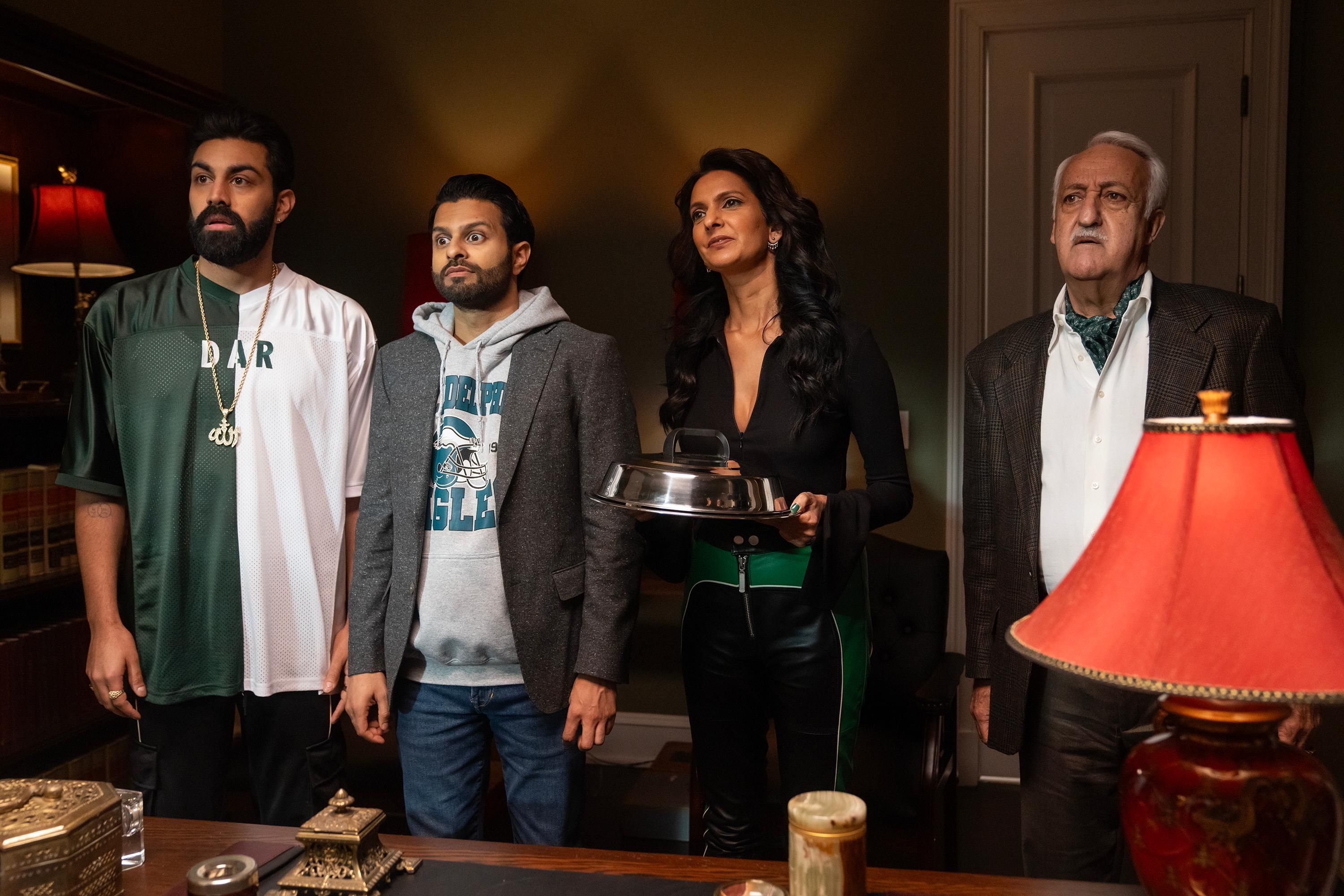
SS: More writers need to follow Geena’s advice. What’s being on a brown show like?
PJ: On a white show, you’ll have 22 actors who all get along, even love each other. They’ll see each other Monday morning, and they’ll be like, Gary, what was your weekend like? And Gary will say, ‘Phil, it was great. I spent time with the kids and went golfing. Etc.’ On a brown set, you don’t have to ask because you’re now spending the weekend with the entire family. It’s a deeply familial set; there isn’t a single meal you are eating alone.
SS: It’s not just on set, though. There seems to be a bit of a squad now with you, Mindy [Kaling], Richa [Moorjani], Sarita [Choudhury], Lilly [Singh]—you’re always out there cheering each other on.
PJ: That is true, they are my best friends. I just got off the phone with Richa 10 minutes before you called, and she just called again. Do you remember when you were really young, and you’d have that one best friend you didn’t know, but you were totally co-dependent? Relationships you never think you’ll have as an adult. I have a son. I have a husband. I have, like, you know, laundry to do. And yet here we are, totally co-dependent, in the best possible way.
They are so talented, though. We just want to make sure that we amplify that. That’s our mission. There’s a deep love and respect. But I don’t take this bond for granted. I understand their place in the business.
In Bollywood I always felt not right, like a black sheep. It’s just not the case here (in the US), even when I wasn’t successful, I was never made to feel like I didn’t belong.”
SS: Do you understand your place in the business?
PJ: I don’t… I really have no sense of it. I have a much greater feeling of belonging and being welcomed than I did before. I can see Mindy’s place in the business so clearly. She’s a content creator leading the charge. I don’t have the same clarity when it comes to myself. There’s no way that someone is paying me to laugh my ass off. Right? And now I’m on Lanterns. How the fuck did I get that? Every episode, I’m not screaming inside, I’m just screaming.

